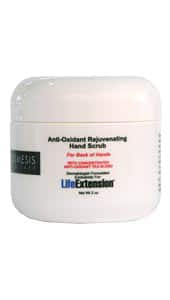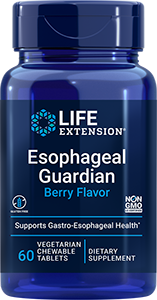 | May 16, 2008 | | | | The May 15, 2008 issue of the American Journal of Respiratory and Critical Care Medicine published the discovery of researchers at the University of Louisville in Kentucky that the antioxidant property of green tea could help prevent the cognitive deficits associated with obstructive sleep apnea (OSA). Sleep apnea occurs when breathing is periodically interrupted during sleep, temporarily depriving the brain of oxygen. When caused by airway collapse or blockage which obstructs breathing during sleep, the condition is known as obstructive sleep apnea. Sleep apnea is associated with architectural changes in brain areas involved with memory and learning, and with neurocognitive deficits that are believed to be caused in part by increased oxidative stress. University of Louisville Kosair Children’s Hospital Research Institute director David Gozal, MD and his associates intermittently deprived 106 male rats of oxygen during twelve hour cycles, a treatment which has been shown to result in the increased oxidative stress and cognitive deficits observed in human sleep apnea. A control group of animals received regular room air. Green tea catechin polyphenol extract was added to the drinking water of half of the oxygen-deprived rats for a 14 day period. Water maze testing was conducted to evaluate spatial learning and memory, and brain tissue was analyzed for markers of oxidative stress and inflammation. Oxygen-deprived rats that received green tea polyphenols performed significantly better on the water maze test than those that received plain drinking water. While the oxidative stress marker malondialdehyde doubled in untreated rats that underwent oxygen deprivation compared to control rats, a 40 percent reduction in malondialdehyde was observed in animals that received tea polyphenols. “A growing body of evidence suggests that the adverse neurobehavioral consequences imposed by intermittent hypoxia (IH) stem, at least in part, from oxidative stress and inflammatory signaling cascades,” Dr Gozal writes. “Because oxidative processes underlie neurocognitive deficits associated with intermittent hypoxia, the potential therapeutic role of green tea polyphenols in sleep-disordered breathing deserves further exploration,” the authors conclude. | |  |
| One subtype of chronic insomnia is typified by the inability to remain asleep throughout the night despite falling asleep with little or no difficulty. Chronic drug or alcohol abuse is one cause; depression and anxiety disorders are other potential causes. Breathing disorders are also linked with chronic insomnia. Upper airway resistance syndrome may interfere with restful sleep, and obstructive sleep apnea syndrome, which frequently occurs in obese patients, may be characterized by loud snoring, choking, or gasping episodes during sleep. These frequent nocturnal breathing interruptions fragment sleep. As a result, both conditions are accompanied by excessive daytime drowsiness. Breathing disorders may require diagnosis in a sleep laboratory and may warrant special treatment. For instance, continuous positive airway pressure treatment (using a type of breathing mask) may be prescribed to treat sleep apnea. Such treatments may greatly improve sleep (Guilleminault C et al 2001). Sleep apnea patients should avoid any medications, such as sedatives or hypnotics that may depress the respiratory system. These include barbiturates (e.g., Seconal® and Nembutol®) and benzodiazepines (e.g., Valium®) (Rajput V et al 1999). If sleep is disrupted by another condition, such as restless legs syndrome, painful arthritis, or carpal tunnel syndrome, it may be helpful to seek treatment for that condition. In addition, the following herbs and supplements have been shown to help induce sleep: - Valerian—300 to 600 milligrams (mg) valerian root 30 minutes to two hours before bedtime. If taking liquid valerian, take 30 to 40 drops of extract in a small amount of warm water within the hour before bedtime. Long-term valerian therapy is not recommended. Valerian is sometimes used with lemon balm.
- Melatonin—300 micrograms (mcg) to 10 mg about 30 minutes before bedtime. Sometimes lower doses work better than higher doses.
- GABA—350 to 700 mg before bedtime (taken sublingually)
- L-tryptophan—1500 to 2000 mg before bedtime
|
|  |   | | The Anti-Oxidant Rejuvenating Hand Scrub visibly improves the appearance of spots and discolorations, and can help restore youthful texture to skin on the back of the hands. Through the use of corundum or ruby crystals, the product rejuvenates the skin on the back of the hands by removing dead skin cells and allowing the natural anti-oxidants in the product to come into direct contact with the freshly exposed skin. The Anti-Oxidant Rejuvenating Hand Scrub is an exfoliating cleanser with antioxidants, moisturizers, and rejuvenators used to improve the appearance, feeling, and texture of the skin on the back of the hands. | | |   | | Natural EsophaGuard is a novel, all-natural solution for gastric distress. Its active ingredient, a standardized extract from orange peel known as d-limonene, has been shown to provide fast-acting, long-lasting relief from gastric distress. D-limonene is thought to coat the esophagus and guard against caustic stomach acid, while helping to reduce the amount of gastric juices regurgitated into the esophagus. In one study, 89 percent of participants reported resolution of gastric distress after taking one 1000-milligram gelcap of orange peel extract every other day. In a controlled, double-blind second phase of this study, 83 percent reported significant relief after two weeks of using orange peel extract. No adverse effects were reported, and some participants reported relief lasting up to six months. | | | |  | | Life Extension Update | | What's Hot | | Life Extension magazine | |

